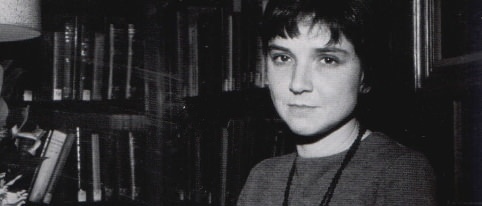What do you think?
Rate this book


170 pages, Paperback
First published December 31, 1978
Thinking of lovers, their bind faith, their
experienced crucifixions,
my envy is not simple. I have dreamed of going to bed
as walking into clear water ringed by a snowy wood
white as cold sheets, thinking, I’ll freeze in there.
My bare feet are numbed already by the snow
but the water
is mild, I sink and float
like a warm amphibious animal
that has broken the net, has run
through fields of snow leaving no print;
this water washes off the scent—
You are clear now
of the hunter, the trapper
the wardens of the mind—
yet the warm animal dreams on
of another animal
swimming under the snow-flecked surface of the pool,
and wakes, and sleeps again.
No one sleeps in this room without
the dream of a common language.

We will not live to settle for less
I am not with her I have been waking off and onThe poem that thunderstruck me was in the Love Poems section, number V. It's an amazing piece about how each of our bookshelves of the 'greats' is hiding the absence of the greats that never got a chance to speak or be heard -- women, minorities, voices of defiance, the prophets, the poor -- either because they died or lived oppressed never able to speak, or due to silencing. This was such an important poem for me because at one point in my life I had a significant other who pointed to the lack of female philosophers and mathematicians on the shelves as proof that women didn't have a lot to contribute to new thought and discovery. He was just an example of a multitude of voices surrounding me with similar, and both loudly or subtly expressed opinions. And those opinions worm their way into society broadly, and my own self-image locally. It takes a lot of energy to call BS on something so widespread and insidious (and to have to repeatedly do so). So I embraced this whip-smart, poignant poem as a call-to-arms to remember the voiceless.
all night to that pain not simply absence but
the presence of the past destructive
to living here and now
This apartment full of books could crack open
to the thick jaws, the bulging eyes
of monsters, easily: Once open the books, you have to face
the underside of everything you’ve loved –
the rack and pincers held in readiness, the gag
even the best voices have had to mumble through,
the silence burying unwanted children-
women, deviants, witnesses – in desert sand.
Kenneth tells me he’s been arranging his books
so he can look at Blake and Kafka while he types;
yes; and we still have to reckon with Swift
loathing the woman’s flesh while praising her mind,
Goethe’s dread of the Mothers, Claudel vilifying Gide,
and the ghosts – their hands clasped for centuries--
of artists dying in childbirth, wise-women charred at the stake,
centuries of books unwritten piled behind these shelves;
and we still have to stare into the absence
of men who would not, women who could not, speak
to our life—this stlll unexcavated hole
called civilization, this act of translation, this half-world.